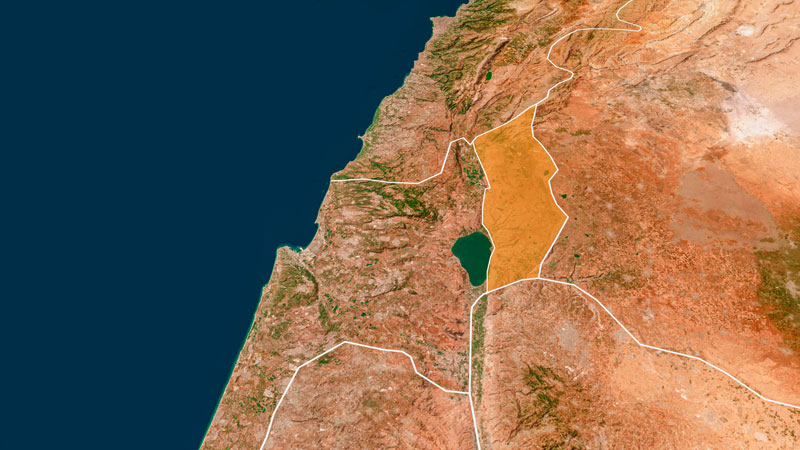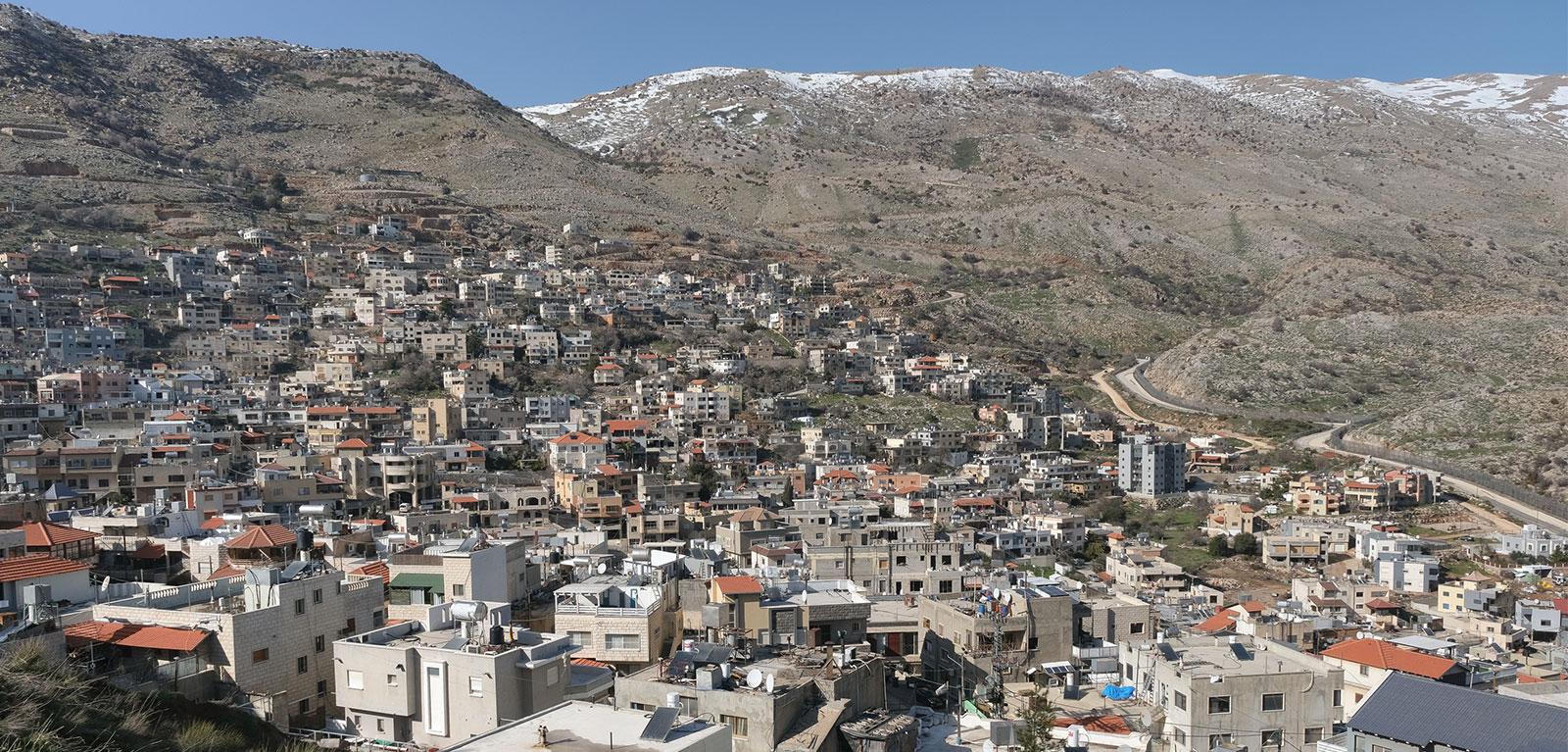Palestinian communities have long used human rights as a tool to articulate and challenge their experiences of oppression. However, far less attention has been given to the impacts of the ‘forgotten occupation’ on the Syrian community in the Golan (Jawlan in Arabic) and how they engage with human rights in their own struggle.
This project explores how the Israeli occupation of the Syrian Golan impacts the lives of Golani (Jawlani) youth (ages 18-25) from the remaining Syrian Arab communities. It asks how do they understand and use human rights in their struggles for justice.
It compares Jawlani youth's perspectives with:
- Older generations
- Palestinian peers in the occupied West Bank
It also examines:
- What youth from both jurisdictions know about one another’s human rights situations
- How they can build or strengthen networks of solidarity
It considers how perspectives are shaped by the:
- Conflict-affected Syria
- Escalation of violence in the region
- Political views and religious beliefs.
 Legal Status of the Syrian Golan
Legal Status of the Syrian Golan
In 1967 Israel occupied two-thirds of the Syrian Golan leading to the displacement of around 127,000 indigenous Syrians (95% of the population). In 1981, Israel went on to illegally annex the Syrian Golan through enacting the Golan Heights Law (1981). In response, the UN Security Council issued Security Council Resolution No. 497 and stated that Israel’s plans to impose its law and sovereignty over the occupied Syrian Golan was null and void. The UN reiterate Israel’s illegal occupation and annexation of the Syrian Golan on an annual basis.
Meanwhile, Israel has constructed 35 settlements in the occupied Golan, which are illegal under international law. Since the collapse of Bashar al-Assad’s regime in Syria, Israel has approved a plan to double this number by 2027. Israel has also gone on to occupy more Syrian territory violating the 1974 Disengagement Agreement with Syria, according to the UN.
Although Jawlanis were unable to reverse the illegal annexation, they refused the imposition of Israeli ID cards. Today, 80% of the Syrian community in the occupied Golan have rejected Israeli citizenship, meaning that their nationality is ‘undefined’. This also negatively impacts their rights in different spheres of life, which this research will shed light on.
Golani-Palestinian Relationship
Golani-Palestinian networks of solidarity were well established in 1970s and 1980s. Following the illegal annexation of the Golan in 1981, Palestinians in refugee camps mobilised in support. However, the Golani-Palestinian relationship was negatively impacted following the Oslo Accords (1993-1995). Therefore, this project aims to deepen our understanding of what youth in both jurisdictions understand about one another’s human rights situations.
Research team
 Erika Jiménez | Lead researcher
Erika Jiménez | Lead researcher
Erika is a Leverhulme Early Career Fellow, a member of the Human Rights Centre at the School of Law, a member of the Centre for Children’s Rights at SSESW and a Fellow of the Institute for Global Peace, Security and Justice at Queen’s University Belfast. She is author of Rethinking Human Rights: Critical Insights from Palestinian Youth and is being mentored by Prof. Colin Harvey.
Asfour Hur | Research Assistant, occupied West Bank.
Tufah Hur | Research Assistant, occupied Syrian Golan.
This project is being done at a time when voices from the Palestinian and Golani communities are being suppressed and silenced. The Research Assistants selected these pseudonyms to protect their identities.
Advisory groups | This project adopts a rights-based participatory methodology in that the research team also includes two advisory groups made up of youth from the Golani and Palestinian communities. These advisory groups are helping to shape the research design, methods, analysis and strategy for dissemination of the findings.
Contact
To find out more about the project, and to get involved in other ways, please email lead researcher Dr Erika Jiménez e.jimenez@qub.ac.uk. We are open to collaboration especially in creative ways that can help amplify the marginalised voices of Golani and Palestinian youth.
Jiménez, E., One, A., & Two, A. (2025). Criticality as refusal: counterstories of the occupied, (non)-collaboration, and resisting silence. Teaching in Higher Education, 30(6), 1363–1376. https://doi.org/10.1080/13562517.2025.2519913
Jiménez. E. (2024) Rocket attack kills 12 children in Golan Heights – who are the Druze who live there? The Conversation Blog (30 July 2024).
Congrés internacional: 'Palestina. Marcs, reflexions i perspectives' at the Universidat de Barcelona.
Walled Cities 7: The Syrian Bride + Discussion at the QFT.
Related outputs:
Jiménez. E. (2024) Rethinking Human Rights: Critical Insights from Palestinian Youth

